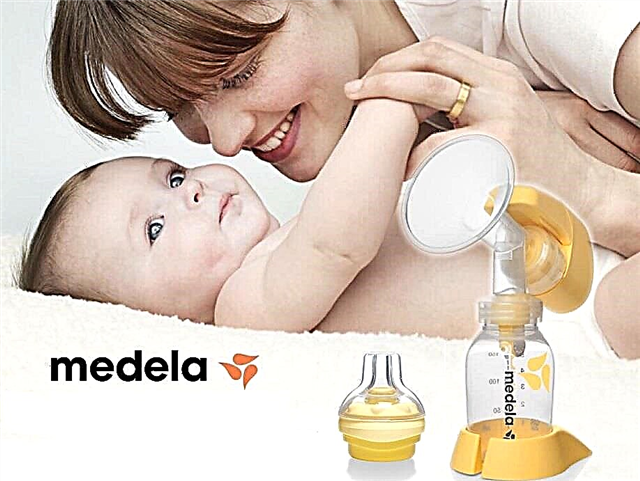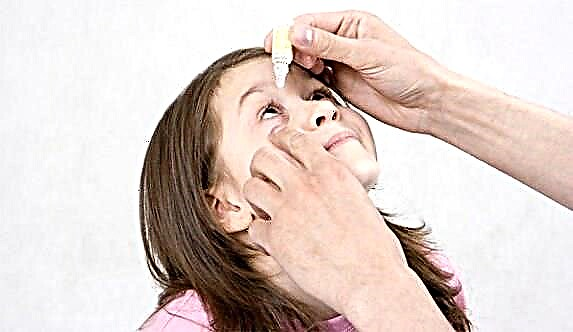
If a child often suffers from acute respiratory infections and at the same time a runny nose, laryngitis or bronchitis do not go away for a long time, doctors recommend special drugs that strengthen the immune system, and in their manufacture they use microbial cells in the form of lysates. Such cells are destroyed, therefore they are unable to cause illness, but their entry into the child's body provokes an immune response.
One of the drugs based on such lysates is Ismigen. It is often prescribed to children as a prophylactic or therapeutic agent for acute respiratory diseases.

Release form
"Ismigen" is one of the products of the well-known pharmaceutical manufacturer "Stada" and is presented in only one form - sublingual tablets.
They have a light cream shade with some brown spots. These tablets have a round flat shape and an indistinct mint smell. The drug is packaged in blisters of 10 and is sold in 10 or 30 tablets per pack.


Composition
The action of "Ismigen", as noted above, is provided by lysates of microorganisms, presented in one tablet at a dosage of 7 mg. The preparation contains such destroyed bacteria:
- Staphylococcus aureus;
- pyogenic streptococcus;
- streptococcus viridans;
- 6 types of pneumococci;
- Klebsiella pneumoniae and its subspecies Klebsiella Ozena;
- Haemophilus influenzae type B;
- neisseria catarlis.

To make the medicine solid, but at the same time quickly dissolve in the mouth, microcrystalline cellulose, calcium hydrogen phosphate, silicon dioxide and magnesium stearate are added to the lysates. The preparation also contains a mint flavor, ammonium glycyrrhizinate and glycine. These components give Ismigen a sweet mint flavor.
How does it work?
The drug is considered an immunostimulating agent, since the mechanically destroyed microbial cells present in it activate nonspecific immunity and have a specific effect, similar to vaccination, since they contain antigens. Reception of "Ismigen" stimulates the production of immunoglobulin A and lysozyme, and also affects the activity of phagocytosis and the number of immune cells, due to which infectious agents are destroyed faster.
The use of tablets reduces the incidence of acute respiratory infections, and if the disease does develop, the drug helps to shorten its duration and quickly get rid of fever, shortness of breath, cough and other unpleasant symptoms.

When taking Ismigen, the need for anti-inflammatory drugs and antibiotics decreases, and if a child has chronic diseases of the respiratory system, this medicine is the prevention of their exacerbations.
Indications
Bacteria in Ismigen are most often found in various respiratory infectious diseases, therefore, the drug helps to cure or prevent such pathologies:
- bronchitis;
- rhinitis;
- sinusitis;
- otitis;
- pharyngitis;
- tonsillitis;
- laryngitis.
It is also often prescribed for the flu to prevent bacterial complications or to cure them if a bacterial infection has joined the viral infection. In chronic bronchitis "Ismigen" is used prophylactically in order to prevent exacerbation episodes.
At what age is it assigned?
Since "Ismigen" must slowly dissolve in the mouth, such tablets are not used in the treatment of patients under three years old, since this method of administration is not suitable for young children.

Contraindications
The drug is not prescribed only to children with hypersensitivity to any of its components. Ismigen has no other contraindications, besides intolerance and early age.
Side effects
Some children react to Ismigen with hives or skin inflammation, but this is extremely rare. In addition, in some patients, the drug can cause rhinitis, acute laryngitis or inflammation of the salivary glands.
If a child has such side effects of pills, the medicine is immediately canceled and a doctor is consulted.

Instructions for use
Tablets should be given to children on an empty stomach, one per day. The medication should be placed under the tongue and allowed to dissolve completely. Do not chew, bite or dissolve the pill. If the child is less than six years old, he must take the drug under the supervision of an adult.
If the child has an acute infection, "Ismigen" is prescribed for a course of at least 10 days. Prophylactic courses of taking pills last 10 days and are usually repeated three times with a break of 20 days. The drug is prescribed prophylactically 1 or 2 times a year.


Overdose
Until now, there have been no cases when a child took a very high dose of Ismigen and this caused a deterioration in health.
If this happens, it is recommended that you induce vomiting and see your doctor.
Interaction with other medications
"Ismigen" is compatible with many other medications that are used for acute respiratory infections or chronic respiratory diseases. However, if the child is already taking some drugs, then it would be correct to clarify the possibility of simultaneous use with a pediatrician before starting treatment.

Terms of sale
"Ismigen" is an over-the-counter medicine, so there are no difficulties with purchasing it at a pharmacy. The average price of 10 tablets is 500-540 rubles, and for a larger package of 30 tablets you need to pay about 1300-1400 rubles.
Storage features
There is no need for any special conditions for storing Ismigen. The tablets should be placed in a place inaccessible to children, in which it will be dry and cool (the temperature should not be more than +25 degrees).
The shelf life of "Ismigen" is 3 years and is indicated on the packaging.
It is forbidden to give this drug to a child if the date marked on the package has passed.

Reviews
On the treatment of children with "Ismigen", you can find mostly good reviews from parents, in which the drug is called effective and note that after a course of such pills, the children recovered faster or were much less likely to have acute respiratory infections.
Its advantages also include the method of administration (the child does not need to swallow pills) and a pleasant taste. However, some young patients did not have a visible positive effect, and many mothers call the price of Ismigen too high.
Doctors treat this medication mostly well and often prescribe it to children who often have a runny nose, pharyngitis or other respiratory disease. However, many pediatricians, including the well-known doctor Komarovsky for mothers, consider the immunomodulatory effect of Ismigen and similar drugs unproven. They are sure that The best way to strengthen a child's immunity is not medication, but maintaining the health of children through a balanced diet, sufficient physical activity and similar factors.

Analogs
If it is necessary to replace Ismigen with a similar product, the doctor may prescribe another drug based on lysates of microorganisms to a small patient, for example:
- "IRS 19" - a nasal spray that can be used on children over 3 months old;
- "Broncho-munal P" - medicine in capsules, prescribed from 6 months of age;
- "Imudon" - a tablet preparation that can be absorbed by a child over 3 years old;
- "Broncho-Vaxom for children" - capsules allowed for children from six months.
Any other medicine that belongs to the group of immunostimulants can serve as a substitute for "Ismigen", for example:
- "Immunal"... The basis of such a drug is a plant called echinacea, in particular, the juice obtained from its herb. The drug is available in a solution that can be drunk by children over 1 year old, as well as in tablets that are used from 4 years of age. It is in demand for frequent ARVI or other infectious diseases.
- Ribomunil... This drug is also made from bacteria, but it contains only their particles - proteoglycans from membranes and ribosomes. The tool is presented in tablets and granules. Children are prescribed it for sinusitis, otitis media, adenoids, tracheitis and other diseases at the age of 6 months and older.
- "Tsitovir-3". Such a three-component immunomodulatory medicine is prescribed mainly for ARVI or influenza. Children are most often given syrup or powder, since these forms are used from one year old. There are also capsules approved from the age of 6.
- Isoprinosine. The effect of such a drug on the human immune system is associated with the presence of inosine pranobex. The drug is prescribed for infection with herpes, influenza, measles, cytomegalovirus and other infectious diseases. For children, such pills are not prescribed until the age of 3.
- "Likopid"... These tablets are used not only for infections of the respiratory system, but also for purulent skin diseases, as well as for herpes. For children, a medicine with a dosage of 1 mg is intended - it is given to patients over three years old.
Dr. Komarovsky will tell you how to treat ARVI in children in the next video.



